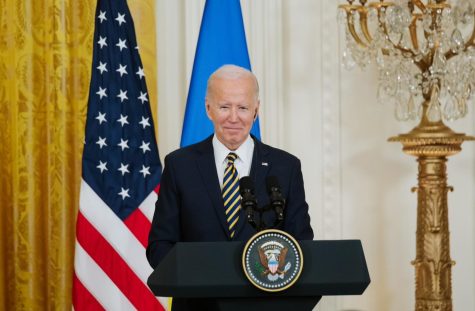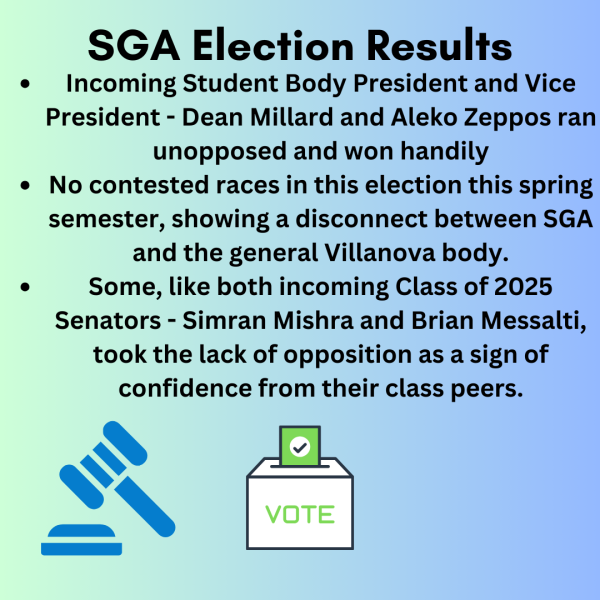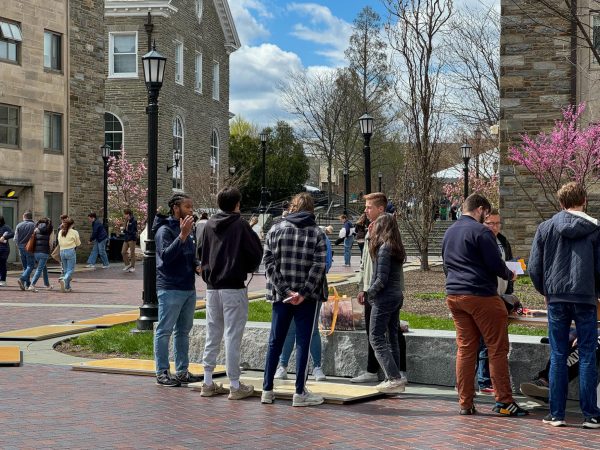Economic woes, travel alerts do not deter students from studying abroad
October 20, 2010
With the deadline for spring study abroad programs come and gone, nearly 200 Villanova students are preparing to leave the Main Line behind in a matter of months to travel the world.
To be eligible for programs in the coming semester, interested students were required to submit their paperwork to the Office of International Studies by Friday, Oct. 8 before departing for fall break.
As of that date, 180 students had successfully applied to study overseas in the spring.
According to the Office’s website, Villanova students have studied abroad on six continents, with Antarctica as the exception.
University statistics show that many students choose classic destinations for their overseas experience.
“The top destinations tend to be the ‘usual suspects’: the UK, Ireland, Spain and Italy,” said Director of International Studies Lance Kenney. “As of last year, China replaced Australia as the fifth most popular destination.”
However, students also have the option of traveling to more nontraditional locations on the globe, such as Cameroon, Botswana and the United Arab Emirates.
This spring, new destinations include Madagascar and the University of the West Indies.
Despite rough economic times and turbulence around the world, Villanova’s study abroad program is more alive than ever.
According to Kenney, 35 percent of the Class of ’10 had gone abroad during their time at Villanova.
Although the recent Europe-specific travel alert issued by the U.S. State Department may cause concern for students deciding where to study, Kenney said that the alert “does not affect our study programs, other than to draw attention to the importance of all travelers to remain vigilant while in Europe.”
A statement on the Office’s homepage notes the difference between an alert, which cautions travelers about “short-term conditions…that pose significant risks to the security of U.S. citizens,” and a warning, which classifies a foreign country as unstable and encourages Americans to reconsider their travel plans.
About half of Villanova students who choose to study abroad do so over the summer. According to Kenney, the 2009-’10 academic year saw about 400 students travel overseas during the fall and spring semesters, and 400 travel during the summer.
The number of students in each major who study abroad tends to be reflected by University-wide enrollments, according to Kenney.
Junior communication major Katie Armstrong has been an active participant in Villanova’s study abroad programs.
Since the summer of 2009, she has traveled to both Russia and France, and plans to begin a one-year program in Australia at the University of Melbourne, starting this spring. Armstrong cites the dedication of the Office of International Studies in making the entire process of studying abroad trouble-free.
Once students sign up online for one of nine weekly group information sessions, which highlight the different aspects of studying abroad, each applicant is paired with an adviser from the Office of International Studies.
The one-on-one partnership ensures that students receive help in choosing a destination and classes at their host university, and that academic credit will count towards the student’s degree.
“They care so much about getting you into the right program and making sure the courses taken abroad will count towards the degree,” Armstrong said. “Any time I’ve had a question, that question is answered immediately by my study abroad adviser.”
Although all students have the ability to study abroad, regardless of their major, summer programs are often popular options for students in more narrow and demanding academic tracks.
Last June, junior nursing student Sarah LeBrun was enrolled in a six-week program in Siena, Italy.
“Many of our required classes are only offered during a specific semester, and a person who chose to study abroad for a semester or year most likely would not graduate on time, with the exception of a year-long program in Manchester, England, that is specifically for nursing students,” LeBrun said. “The benefit of a summer program is that you still get the experience of studying in another country without having to plan courses around being gone for a semester.”
From the student perspective of Armstrong, studying abroad is an essential part of treating the world as a classroom.
“Take any and every opportunity you have to study abroad,” Armstrong said. “Not only is it an adventure in discovery, but in today’s world, especially with the onset of globalization in the workforce, students cannot discredit the wealth of an opportunity to incorporate more diversity and more challenge in their undergraduate education.”













